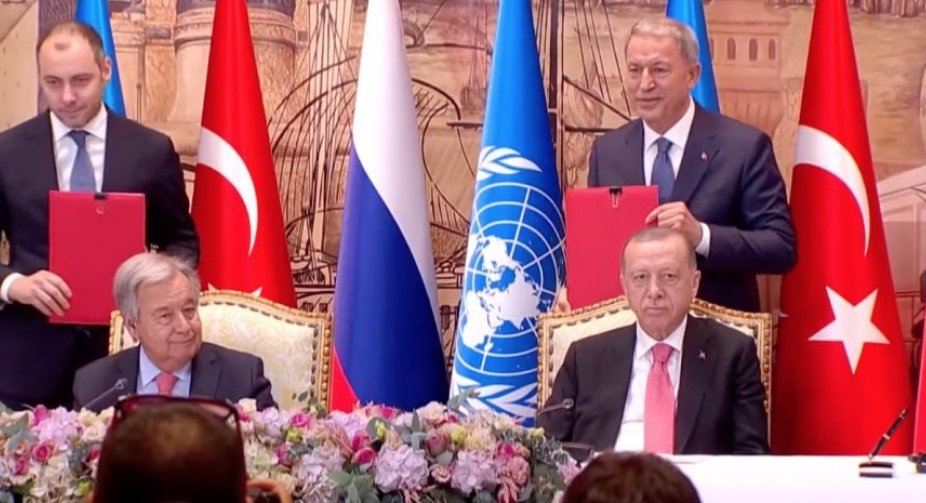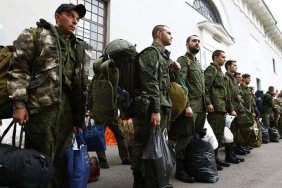Ukraine, Turkey and Russia, supported by UN Secretary-General António Guterres, have agreed to promote safe shipping for the export of grain, related food products and fertilizers (including ammonia) from the sea ports of Odesa, Chornomorsk and Pivdenniy within 120 days with the possibility of extending this period.
The relevant signing of documents under the initiative for the safe transportation of grain and food from Ukrainian ports took place in Istanbul on Friday: Ukrainian Infrastructure Minister Oleksandr Kubrakov signed a trilateral document with Turkish Defense Minister Hulusi Akar and UN Secretary General, who also signed a second such trilateral document with Russian Defense Minister Sergei Shoigu in the presence of Turkish President Recep Erdogan.
As noted in the text of the initiative, a copy of which is available to the Interfax-Ukraine news agency, it is based on the agreements of the parties to the 1974 International Convention on Safety of Life at Sea.
In particular, the parties agree on the following:
Maximum security guarantees for all vessels participating in the initiative;
Establishment of a joint coordination center (JCC) under the auspices of the UN in Istanbul, including representatives of all parties;
Establishment and operation on the vessels participating in the initiative of inspection groups from representatives of the parties, which will inspect the vessels in the ports determined by Turkey at the entry/exit to/from the Turkish Straits to verify the absence of unauthorized cargo and personnel on board.
At the same time, all activities in Ukrainian territorial waters will be under the control and responsibility of Ukraine.
The parties will not undertake any attacks on merchant and civil vessels and port facilities involved in this initiative.
If it is necessary to clear the approaches to the ports - the minesweeper of the third country should be involved.
Merchant ships must be pre-registered with the JCC and will be under technical control for the duration of their passage through the maritime humanitarian corridor agreed by all parties.
The JCC will develop and distribute a detailed operational and communication plan, including identification of safe havens and options for medical assistance along the route.
To prevent provocations and incidents, ships transiting the humanitarian maritime corridor will be remotely monitored by the Parties.
"No warships, aircraft, or unmanned aerial vehicles (UAVs) may approach the maritime humanitarian corridor closer than the distance agreed upon by the JCC, without permission from the JCC and only after consultation with all the Parties," the text of the initiative stresses.
The initiative will be valid for 120 days from the date of signing by all the Parties and may be automatically prolonged for the same period, unless one of the Parties notifies the other Party of its intention to terminate or change the initiative.
At the same time, the achievement of an agreement on the export of Ukrainian grain does not mean the weakening of the security regime in the Black Sea, representatives of Ukraine have repeatedly stressed.






